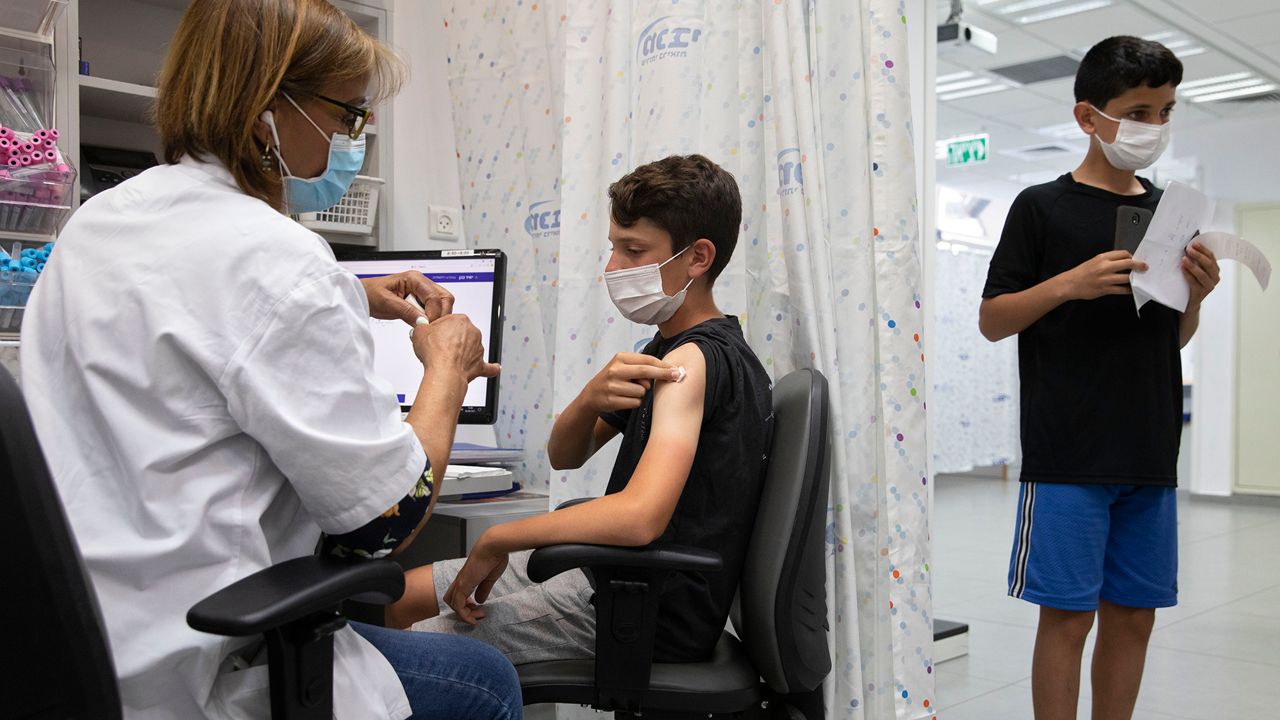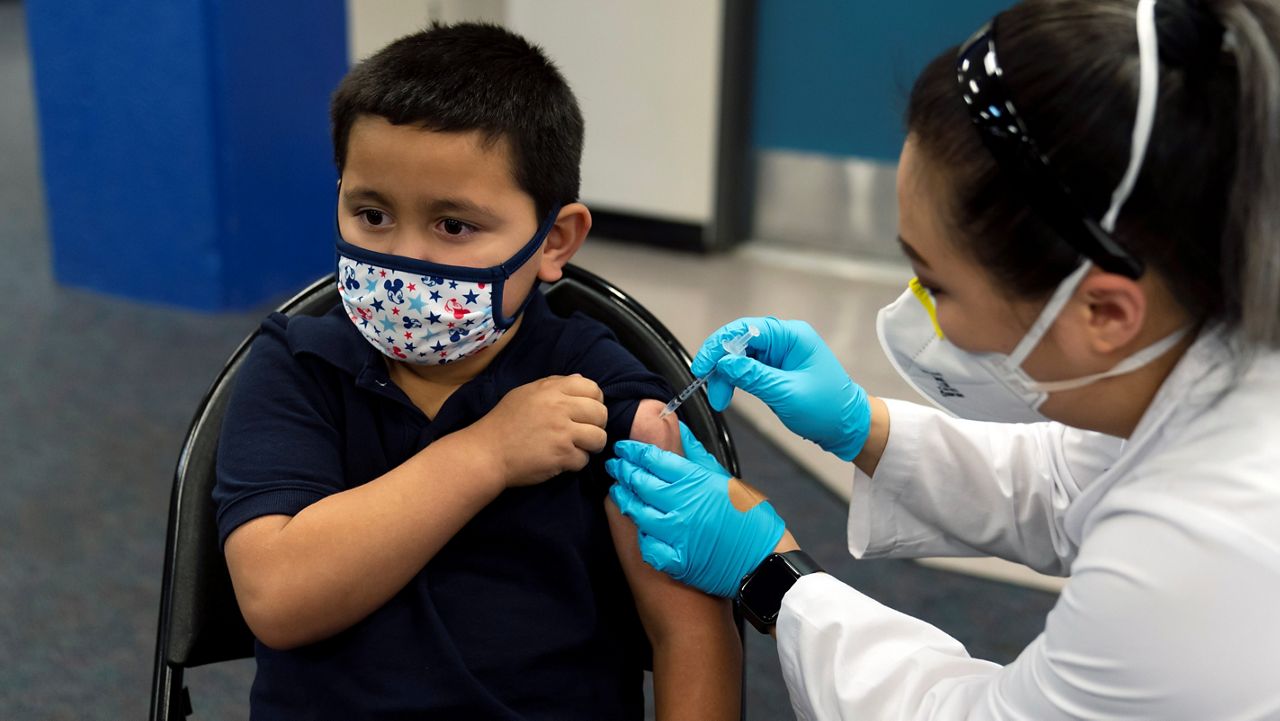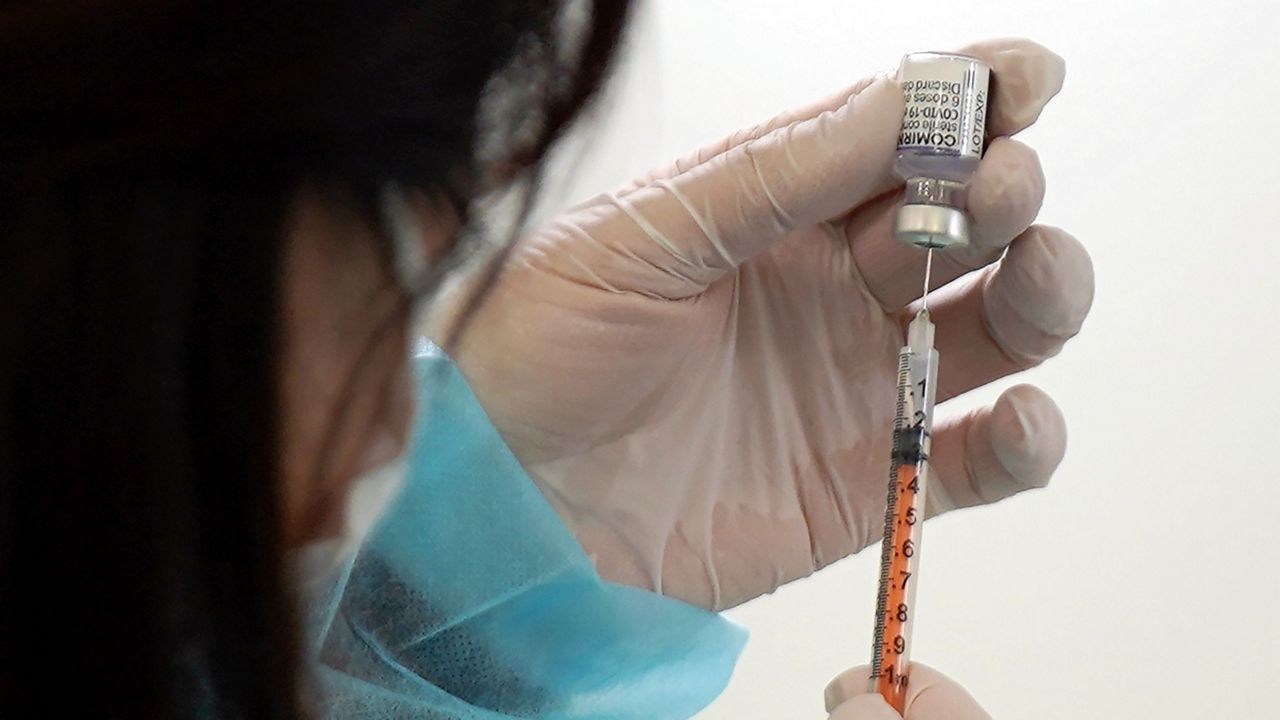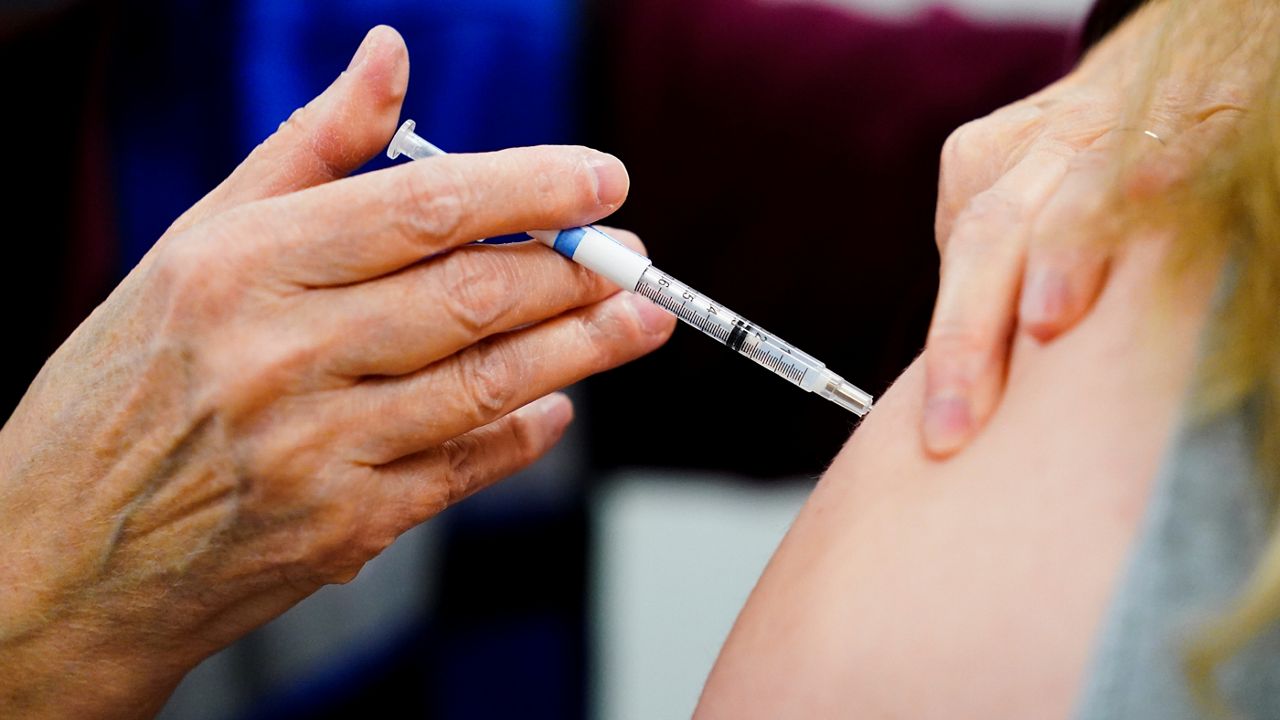Children as young as 5 can now get a COVID-19 vaccine.
This week, Pfizer passed the final hurdles to give its coronavirus vaccine to 5 to 11-year-olds. Kids 12 and up were already able to get vaccinated.
“We know millions of parents are eager to get their children vaccinated, and with this decision, we now have recommended that about 28 million children receive a COVID-19 vaccine,” said Dr. Rochelle Walensky, director of the Centers for Disease Control and Prevention.
“As a mom, I encourage parents with questions to talk to their pediatrician, school nurse or local pharmacist to learn more about the vaccine and the importance of getting their children vaccinated,” she said in a statement Tuesday.
Parents have a lot of questions about vaccinating their children. Spectrum News 1 reviewed information from the CDC and spoke with three doctors from UNC Health in North Carolina to break it all down.
Here are the answers to 10 common questions now that elementary school children can get vaccinated for COVID:
The Pfizer-BioNTech vaccine is the only shot available to children. Younger children will need to get two doses about three weeks apart.
For 5 to 11-year-olds, the shot will be a third of the dosage given to teens and adults, according to the CDC. The needle used for younger kids will also be smaller.
Based on the clinical trials and review by the Food and Drug Administration and the CDC, the vaccine is safe and effective.
“To me this is really a no brainer, the vaccines are safe,” said Dr. David Wohl, an infectious disease specialist who has been helping lead the vaccination campaign for UNC Health in North Carolina.
“We tried it out on half of humanity before we gave it to 5 to 11-year-olds. We gave it to half the people on the planet: you can’t do much better than that to prove how safe and effective it is,” he said.
Younger kids could see the same side effects as adults, including fever, fatigue and muscle aches, said Dr. Peyton Thompson, a pediatrician with UNC Health.
The side effect that has gotten the most attention is myocarditis, a swelling of the heart.
“It’s a very rare side effect that we’re mainly seeing in older teenage boys,” Thompson said.
She said the risk of getting myocarditis from the vaccines is actually much lower than getting it from COVID-19.
“One thing to prepare for is to make sure your child has about a day or so for potential recovery after the vaccine,” she said.
Thompson said parents should not pre-treat kids with Tylenol of ibuprofen before they get their vaccines, but it would be good to have some on hand in case they don’t feel well after.
Because of the potential side effects, Thompson said parents should not schedule the vaccine appointment for the day before their child has a test or something else big going on at school.
“Every child will be different,” North Carolina’s Department of Health and Human Services said. But kids may be tired or sore that day or the next.
If possible, public health officials say, parents should get children vaccinated on a day when they could rest.
Pharmacies, hospitals and pediatricians are starting to make appointments now. Kids as young as 5 could start getting shots this week, but the roll-out will really begin with more doses available the week of Nov. 8.
It will take about five weeks for children to be considered fully vaccinated from the time they get their first shot.
“Thanksgiving is going to be tough this year,” UNC’s Wohl said. “There are a lot of folks who are tired of distancing.”
He said he’s planning holiday gatherings with only vaccinated people this year. Wohl said everyone he’s invited will take a rapid test to make sure no one is carrying the virus before they all get together.
But for children who do get vaccinated in the next couple of weeks, they could be fully vaccinated in time to gather with family and friends for Christmas.
Thompson, the UNC pediatrician, said getting more kids vaccinated won’t mean any changes for school mask policies in the short term. But getting more of the population vaccinated will mean that the country could get closer to getting the virus down to more manageable levels.
“It’s great that we’ll have the tool of vaccination and we should use all of the tools in our toolkit,” she said, including wearing masks in schools.
Big pharmacy chains are already starting to make vaccine appointments for children as young as 5. The vaccines are free no matter where a child gets the shots.
Parents should first check with their pediatricians, the CDC said.
To find the closes vaccination sites for children, parents can check vaccines.gov, text their ZIP code to 438829, or call 1-800-232-0233.
Dr. Herman Naftel, a child psychiatrist at UNC Health, said it’s normal for children to be afraid of needles. But getting the COVID-19 vaccine is no different than getting other shots.
Parents should sit down and talk with their children about the vaccine and getting the shot, he said. “It’s important to be honest with our kids, we don’t want to scare them.”
He said it can be helpful to talk through what will happen when they go to get the shot, talk about how it will work, maybe even have them imagine going to the office and rehearsing what will happen.
“I think it’s a very manageable type of anxiety,” Naftel said.









